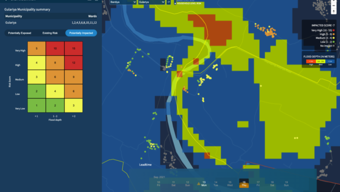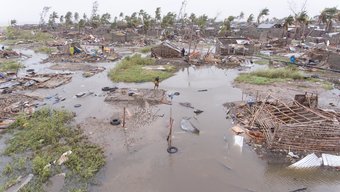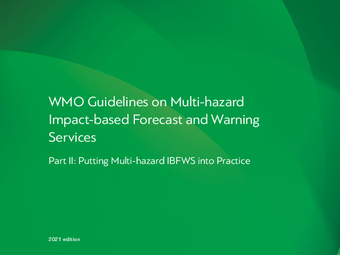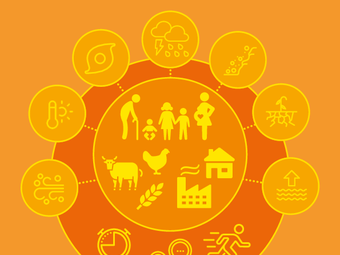Impact-based forecasting and anticipatory action
Weather and climate forecasts traditionally describe what the weather will be: for example, “it will rain this much tomorrow”. Unfortunately, this information is not enough for disaster risk managers and humanitarian actors to act before disasters. To act early, it is critical to understand what the impacts of weather-related hazards might be - on people’s lives, livelihoods and property, and on the economy.
Impact-based forecasting does this, by explaining what the weather will do: for example, “this many houses are expected to be damaged if there is this much rain on this day”. It represents a significant step forward for early warning systems, as it ensures that warning can be translated into targeted early actions. In this way, impact-based forecasting is revolutionizing the way we anticipate disasters and act to mitigate the impacts of weather and climate events.
Introduction to impact-based forecasting
Impact-based forecasts enable anticipatory action, helping to reduce the impacts of weather- and climate-related events. This video explains how this new approach to forecasting and warnings can revolutionize humanitarian and disaster management actions.
Play Video
The need for more impact-based forecasting
Impact-based forecasts often serve as the triggers for forecast-based financing mechanisms, and are therefore a prerequisite for many anticipatory action programmes. Many actors within the humanitarian community, including the Red Cross Red Crescent Movement, UN agencies and other NGOs, have gained extensive experience in implementing anticipatory action programmes, alongside government agencies and scientific partners.
However, while many hydrometeorological agencies have expertise and capacity in providing forecasts and warning services, they are often less familiar with concepts such as exposure and vulnerability, which are critical for developing impact-based forecasts. Building partnerships between the hydrometeorological community and the humanitarian and disaster management communities will support the further development of impact-based forecasts that are ‘fit for purpose’ and can be used to trigger anticipatory actions to protect at-risk communities.
Further information
Please get in contact with us should you want to share knowledge resources on this topic, or engage in knowledge exchange activities.
Do you have a question?
Photo: Cyclone Idai, Mozambique, aftermath, 15-16 March 2019 (Denis Onyodi: IFRC/DRK/Climate Centre)






